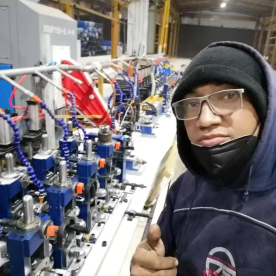[Precision Mould for Tube Mills]Enhancing Efficiency and Quality with Precision Mould for Tube Mills: A Comprehensive Guide to Advancements in Manufacturing Technology
News 2024-8-12
In the competitive world of manufacturing, particularly in the domain of tube production, precision is the name of the game. As industries continue to seek ways to enhance quality and efficiency, the role of advanced machinery and tooling becomes increasingly vital. One of the most significant innovations in this space is the use of precision moulds for tube mills. This article delves into the importance of precision moulds in tube mills, their functionality, advantages, and the technological advancements that have shaped their evolution.
What are Precision Moulds in Tube Mills?
Precision moulds are specialized tools used in industrial settings to shape materials into specific forms with high accuracy. In the context of tube mills, these moulds are integral to the process of forming tubular products from raw metal or plastic materials. The design of a precision mould allows for the efficient production of tubes with exact specifications, thereby meeting the stringent quality standards demanded by various industries, including automotive, construction, and aerospace.
The Functionality of Precision Moulds

Enhancing Efficiency and Quality with Precision Mould for Tube Mills: A Comprehensive Guide to Advancements in Manufacturing Technology
One of the primary functions of precision moulds is to provide a controlled environment for material deformation. The precise geometry of the mould complements the tube mill’s hydraulic and mechanical systems, allowing for even distribution of force and temperature throughout the material being processed. This controlled approach is crucial because any inconsistencies can lead to defects such as warping, misalignment, or inadequate wall thickness.
Advantages of Using Precision Moulds in Tube Mills
1. **Enhanced Quality Control:** Precision moulds are designed to produce components with minimal tolerances, resulting in high-quality tubes that meet the specifications required by clients. This not only enhances customer satisfaction but also reduces the likelihood of returns and rework.
2. **Improved Efficiency:** The use of precision moulds streamlines the manufacturing process by minimizing the need for adjustments, realignments, and additional machining steps. This efficiency translates to shorter production times and lower operational costs.
3. **Longevity and Durability:** Precision moulds are often crafted from high-quality materials designed to withstand the rigors of continuous use. This durability leads to less downtime for maintenance and replacements, ultimately resulting in cost savings for manufacturers.
4. **Customization and Versatility:** Many tube mills equipped with precision moulds offer customization options to cater to specific industry requirements. This flexibility allows manufacturers to produce a diverse range of tube sizes, shapes, and materials, enhancing their market competitiveness.

Enhancing Efficiency and Quality with Precision Mould for Tube Mills: A Comprehensive Guide to Advancements in Manufacturing Technology
Recent Technological Advancements
The evolution of precision moulds in tube mills has been greatly influenced by advancements in technology. For instance, the introduction of computer-aided design (CAD) software has allowed engineers to create more sophisticated mould designs that meet exact specifications while maximizing production efficiency.
Additionally, the adoption of additive manufacturing techniques, such as 3D printing, is revolutionizing the way moulds are produced. This allows for rapid prototyping and the ability to make iterative improvements without incurring significant costs associated with traditional manufacturing methods.

Enhancing Efficiency and Quality with Precision Mould for Tube Mills: A Comprehensive Guide to Advancements in Manufacturing Technology
Precision moulds for tube mills represent a critical component in the manufacturing process, combining technology and engineering to produce high-quality products efficiently. By investing in precision moulds, manufacturers are not only improving their operational effectiveness but also ensuring they can meet the ever-evolving demands of their customers.
As industries continue to thrive on the principles of quality and efficiency, precision moulds will undoubtedly remain at the forefront of technological advancements in tube mill applications. Emphasizing the importance of this component will prepare manufacturers to face future challenges while maintaining excellence in production.
